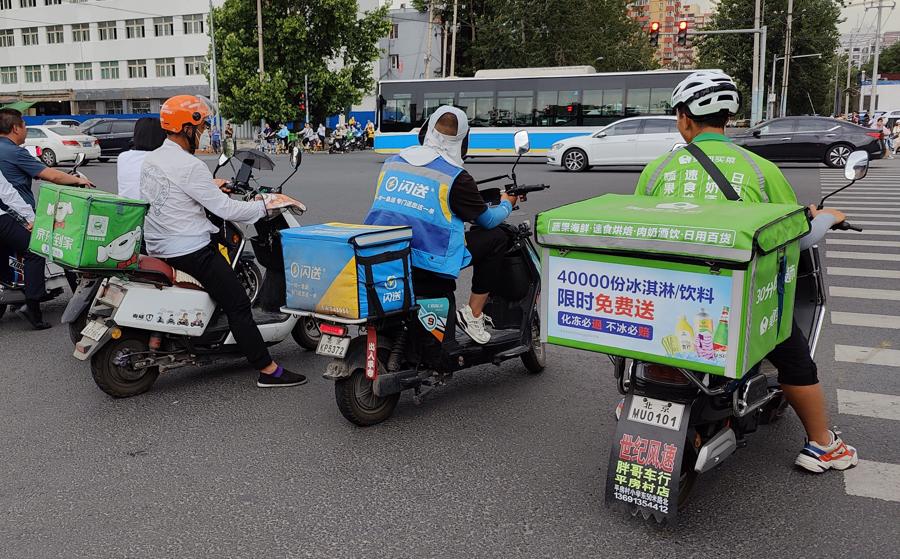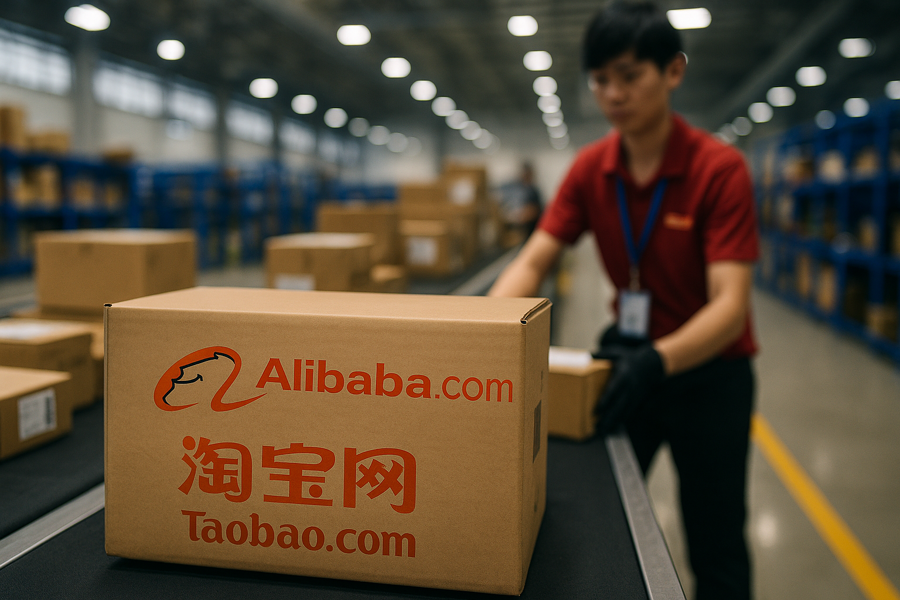Instant retail, once limited to traditional food delivery services, has now expanded to encompass almost anything a consumer could need. With a tap on their phone during their commute, consumers can have their regular coffee waiting for them at the office before they arrive. Woken up at 2 a.m. by a sick child? Medicine will be at your doorstep in minutes. This is the model of China’s rapidly growing instant retail.
Meituan, which operates an app offering diverse services such as bike-sharing, ticketing, and maps, reported revenue for the first quarter of this year at 86.6 billion yuan ($12.1 billion), compared to 73.3 billion yuan in the same period last year. This represents an 18% increase, slightly higher than the London Stock Exchange Group (LSEG)’s expected 16.5%.

China’s instant retail market reached 650 billion yuan ($89 billion) in 2023 and is expected to surpass 2 trillion yuan by 2030, growing at 28% annually, according to the Ministry of Commerce. This is significantly higher than the 11% growth of regular online retail.
A NielsenIQ report from earlier this month found that 72% of instant retail users are under 35 years old. These young consumers value speed and experience over price. Saving time and instant access to goods are becoming crucial in purchasing decisions.
On April 15, Meituan officially launched its Meituan Flash Buy brand, positioning it as the “next-generation shopping platform that accompanies consumers day and night.” Xiao Kun, head of Meituan’s Flash Buy division, said, “We will strive to meet consumers’ expectations of receiving orders within 30 minutes.”
According to Xiao, non-food orders on Meituan’s instant retail service have already exceeded 18 million per day. “Consumer loyalty and purchase frequency are steadily increasing across categories such as fresh produce, beverages, essential household items, and consumer electronics,” he added.
Meituan’s network of quick warehouses (small distribution centers located close to consumers) has reached 30,000 locations and is expected to exceed 100,000 by 2027. Last year, Meituan also expanded its partnership with home appliance retailer Suning and launched a service guaranteeing the delivery and installation of air conditioners within two hours.
Wang Puzhong, CEO of Meituan’s local core business, provocatively stated, “The rise of instant retail is unstoppable. Eventually, it will push the outdated, oversized warehouse-logistics system into the trash can of history.”

While Meituan pushes instant retail and moves into JD.com’s core territory of 3C (computer, communication, and consumer electronics) products, JD.com has simultaneously launched a swift attack on the food delivery market, Meituan’s original stronghold.
Just hours after Flash Buy’s launch, JD.com unveiled its own instant retail service, Miaosong, or Seconds Delivery. This service integrates over 100,000 offline stores branded JD nationwide and boasts an average delivery time of under 30 minutes, according to the company.
JD.com also announced that its daily food delivery orders have exceeded 5 million. To further expand its scale, the company revealed plans to hire an additional 50,000 full-time delivery personnel in Q2. On April 24, the company reported that the daily order volume for Seconds Delivery had exceeded 10 million, spanning 166 cities.
The escalating competition between Meituan and JD.com has taken instant retail to new heights. The short-video platform Douyin has also launched an on-demand delivery feature to boost growth. E-commerce giant Alibaba, through its Ele.me branch, is partnering with supermarkets and offline retailers to offer late-night deliveries for medicines and convenience store goods.
Taobao’s quick delivery service, launched on May 6, covers 50 major cities and applies to items such as food, groceries, electronics, and clothing. It is part of the “Taobao Instant Commerce” initiative, Alibaba’s upgraded on-demand delivery service aimed at expanding its user base, according to SCMP.

Facing constant pressure from online platforms, physical retailers are striving to reinvent their business models and build autonomous, self-operated instant retail ecosystems. For example, Sam’s Club has adopted an endpoint warehouse model, with smaller warehouses located closer to customers, enabling ultra-fast delivery within a 6km radius.
Hong Yong, a collaborative researcher at the Institute of E-commerce under the China International Electronic Commerce Center, shared with Beijing Review, “Instant retail is regarded as the main growth driver of the retail industry.” Apart from enhancing consumer experiences, this model accelerates the digital transformation of traditional retailers, enabling the integration of online and offline channels.
As a result, instant retail has become an essential lever for local governments to nurture and expand new forms of consumption. Shenzhen City in Guangdong Province has included instant retail development in its 2025 priorities and has formulated an action plan to boost the industry’s growth.
By 2026, Shenzhen will see more than 40,000 retailers go online, build five e-commerce platforms, each generating over 5 billion yuan ($714 million) in annual instant retail sales, and foster at least 30 businesses with annual instant retail sales exceeding 100 million yuan ($14.2 million).

To support the industry’s healthy development, expert Hong Yong emphasizes the importance of technological innovation, logistics optimization, and efficient deliveries. “Personalized recommendations and high-quality services are necessary to foster user loyalty,” he added.
At the same time, he calls on the government to establish clear standards and regulations to ensure fair competition and protect consumer rights, thereby unleashing the full potential of instant retail as a driver of consumption.
















